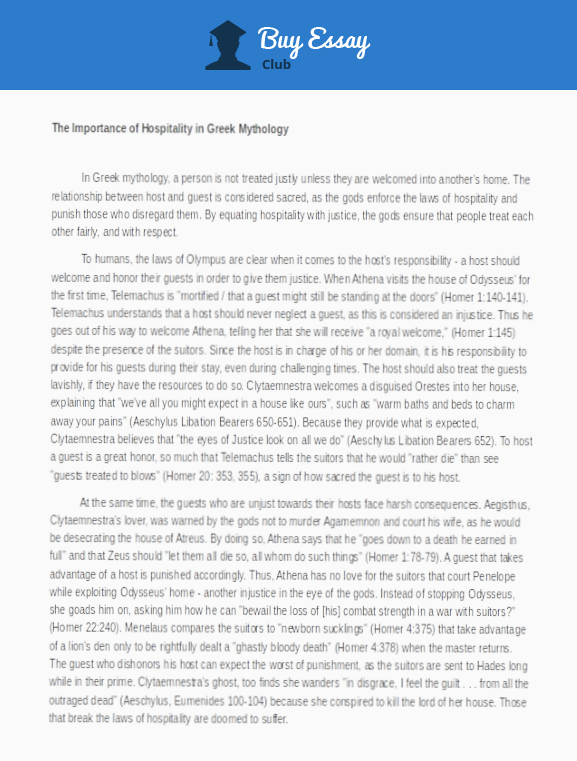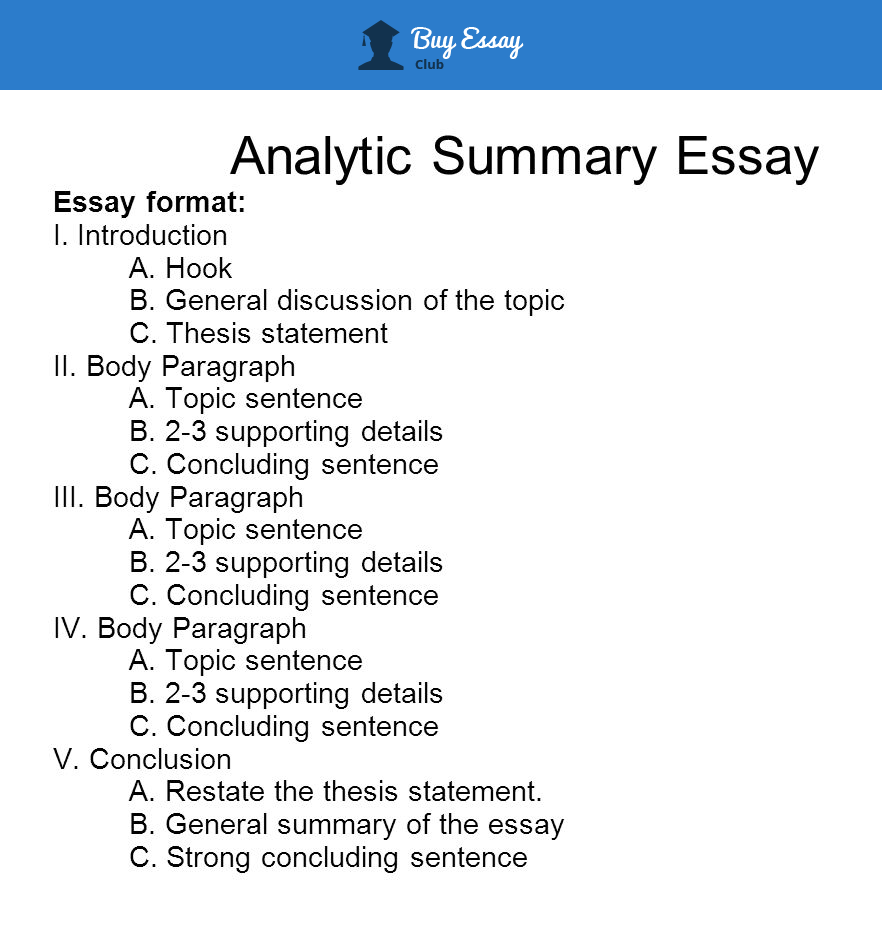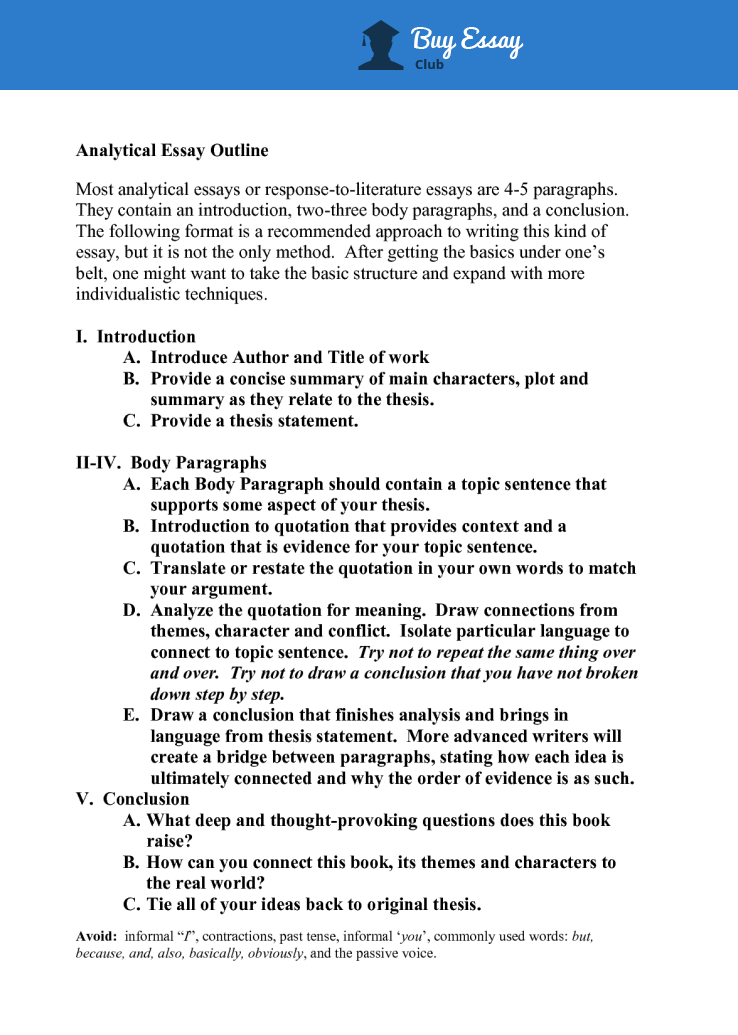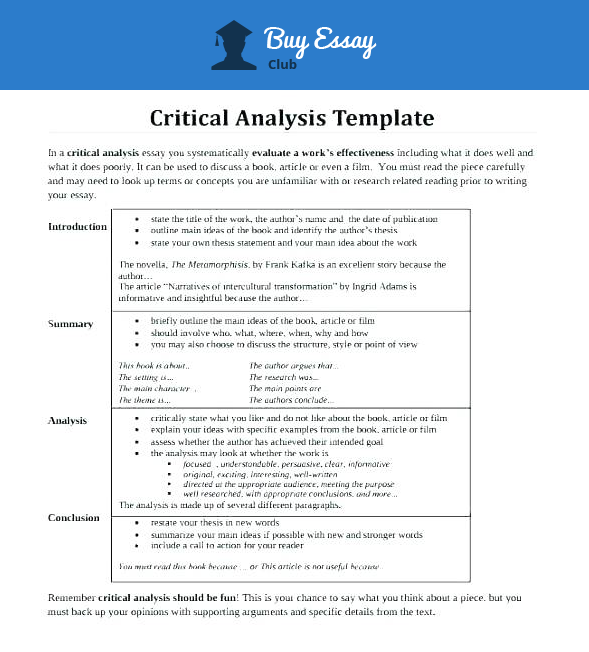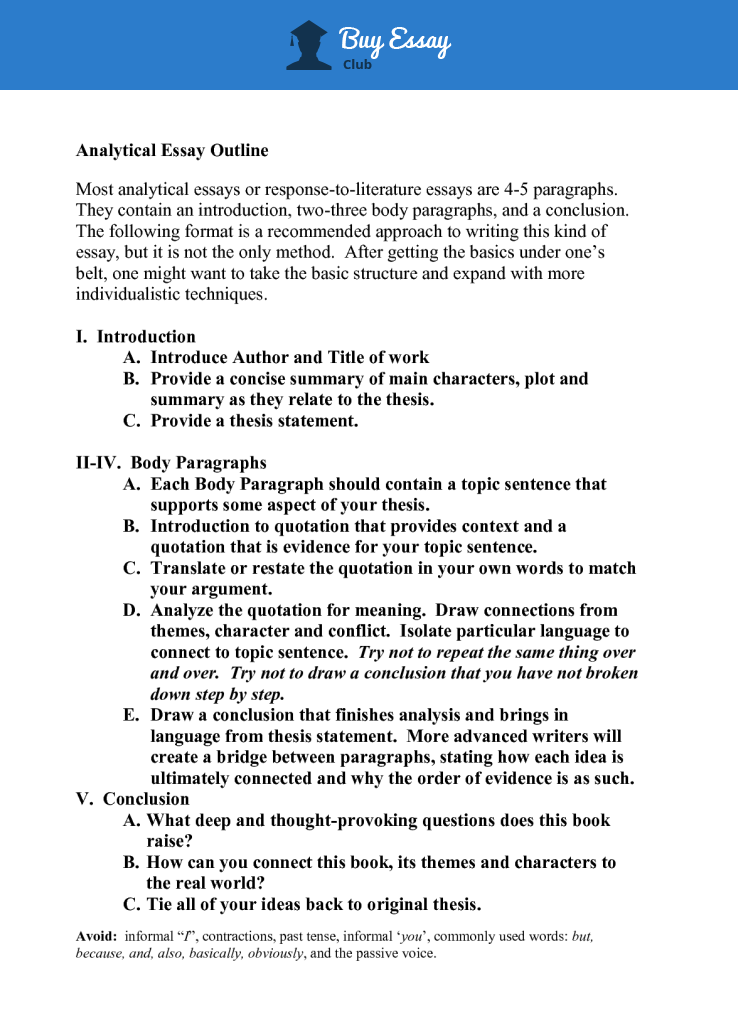Analytical Essay Writing Tips For College Students
The main purpose of any analytical essay is an analysis of an object that is usually a book, a poem, a piece of art, etc.
Crafting an analytical essay you can speak about your own view and interpretation of an object, you can also criticize it or compare its pros and cons.
While the task may sound clear, it’s not always easy to write the essay. Scholars may experience difficulties with understanding how to start an essay or how to build its structure. Our guide helps you to build a working plan to write an analytical essay.
Analytical Essay Preparation
While many students think that writing is the most important and difficult part, in reality, the greatest role is played by proper preparation.
Step 1: Think about the core idea of an essay
It’s time to decide what you are going to write about. Choose a specific theme, field and an issue that you’d like to work with. Be sure that you can get enough interesting and reliable information about the subject.
Step 2: Decide on a topic
When you already know which sphere your future essay will be connected to, it’s time to come up with a topic. Choose a topic that reflects an important aspect of the theme and sounds interesting and fresh enough to attract the reader’s attention.
Step 3: Set a goal for a thesis
A thesis statement of your work is only a short part, however, it influences the whole essay structure and idea. A thesis is a reflection of those aims that you are about to reach writing your essay. Think about problems you are going to solve with your writing, which solutions you can find and which questions you can answer after finishing your essay. All these items shall be reflected in the thesis statement.
Step 4: Note important facts
Writing an essay is usually based on your own opinion. However, your thoughts shall always be supported by facts. Study some information about the object and write down facts that may support your general statements.
Step 5: Set a plan
A plan helps to sort the information out and to structure the text in an understandable and easy to read way. When you have a clear and detailed plan, you can easily remember and understand what facts belong to which part of the text. It helps to use all important data in the correct place.
Analytical Essay Composing and Writing
When your preparation part is over and you have plenty of interesting and useful information both in your head and in your copybook, it’s time to start writing.
Step 1: Write an introduction
A good introduction part serves two aims:
- It informs your readers about a subject you are writing about;
- It attracts the attention of your audience.
In order to reach both of these aims, make your introduction quite short and understandable. Write only information that has a direct relation to the main topic. Avoid revealing too many facts: the introduction part shall intrigue your reader but not give a feeling that a reader already knows what you are going to say further.
Step 2: Write the main part of the essay
Many students think that the body part is the only big paragraph. However, it’s more effective to give information that is separated into smaller parts or smaller paragraphs. Create a separate paragraph for each of your main ideas. Write a core sentence with the main information and then support it by sober facts and bright examples.
Step 3: Include quotes and popular sayings
It’s always nice to add some impressive quotes from famous specialists to your essay. Try to think about proper places, where the quotes can be used.
Step 4: Write a summary
A summary is a paragraph, where you summarize the body part of your essay and make a conclusion that serves for solving issues that were indicated at the beginning of the essay.
Analytical Essay Final Check
Step 1: Proofread your essay for any type of mistakes
You can check if there are any mistakes and misprints in your writing by using some automatic programs or reading and checking the text on your own. You can also combine both methods for a better result.
Step 2: Read the ready essay aloud
Reading your essay in a loud voice will help you to understand whether the essay itself and its components are easy to read and accept.
Step 3: Check names, dates and core facts
Check the spelling of names and make sure whether dates and facts that you use in your essay are correct and coincide with those that are mentioned in official sources.
Analytical Essay Tips
There are some expert tips that help writing an essay and its elements:
- Write down the aim of your essay
When writing an essay it’s easy to forget WHY you write it. Note the main issue your essay is solving and keep the paper around. This will be your reminder and a helping tool to keep the logical structure of the text. - Cross out unnecessary sentences
Writing an analytical essay you need to be laconic. Remove sentences and words that do not express an important message. - Avoid slang and informal words
While many writers advice writing texts using a more down-to-earth language, here it’s better to use lots of synonyms and terminology. It’s ok to demonstrate your knowledge of professional language and its concepts.

 Calculate
Calculate 